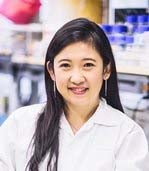Recognising the next generation of scientific leaders
Published: 04 Sep 2015

NUS Medicine congratulates Assistant Professor Yvonne Tay, Principal Investigator, Cancer Science Institute & President’s Assistant Professor, Department of Biochemistry, on her winning a Young Scientist Award.
She and three other young researchers were yesterday recognised with the Awards, which are organised by the Singapore National Academy of Science (SNAS) and supported by A*STAR. The Young Scientist Awards were presented by Mr S. Iswaran, Minister, Prime Minister’s Office, and Second Minister for Home Affairs and Trade & Industry to Dr Tay, as well as to Dr Goki Eda, also from NUS, Dr Nripan Mathews from Nanyang Technological University (NTU) and Dr Wan Yue from A*STAR’s GIS.
The Young Scientist Awards recognise young researchers, aged 35 years and below, who are actively engaged in R&D in Singapore, and who have shown great potential to be world-class researchers in their fields of expertise. This award is organised by the Singapore National Academy of Science and supported by A*STAR. Recipients receive a trophy, a certificate of commendation and a prize of $10,000.
The judging committee for the Young Scientist Awards is chaired by Professor Andrew Wee, President, Singapore National Academy of Science.
Earlier, at the same event, five top scientists and engineers were awarded the President’s Science and Technology Awards (PSTA) by President Tony Tan Keng Yam, in recognition of their achievements in the field of science and technology to advance Singapore’s long-term growth and sustainability.
Over the past 50 years, science and technology have played a critical role in Singapore’s transformation into a thriving innovation hub. The PSTA honours scientific talent which has contributed to Singapore’s success. The PSTA comprises the following:
- President’s Science and Technology Medal (PSTM)
- President’s Science Award (PSA)
- President’s TechnologyAward (PTA)
Dr Yvonne Tay’s research focuses on the study of novel interactions between different classes of
RNA, and how the dysregulation of these interactions can lead to cancer. Her work has led to important contributions in the understanding of the mechanisms of microRNA function. She was amongst the first to demonstrate functional microRNA targeting in the coding regions of transcripts, significantly expanding the sphere of microRNA activity beyond the conventional 3’UTR-dependent model. Furthermore, Dr Tay’s research has also led to the discovery that protein-coding transcripts can co-regulate the tumor suppressor PTEN by competing for shared microRNAs, thus acting as competing endogenous RNAs. Competing endogenous RNAs have since been shown to play critical roles in the pathogenesis of multiple cancers, and represent an additional layer of post- transcriptional regulation, which has profound implications for both basic cancer biology and potential therapeutic applications.
Dr Tay has 7 publications in journals such as Nature and Cell, several of which have been recommended by the Faculty of 1000, and her works have been cited over 3700 times. She is a recipient of the Agency for Science, Technology and Research (A*STAR) Graduate Scholarship (2004), A*STAR Philip Yeo Prize for Outstanding Achievement in Research (2009), Leukemia & Lymphoma Society Special Fellowship (2011), Singapore National Research Foundation (NRF) Fellowship (2014), and NUS President’s Assistant Professorship (2014).

